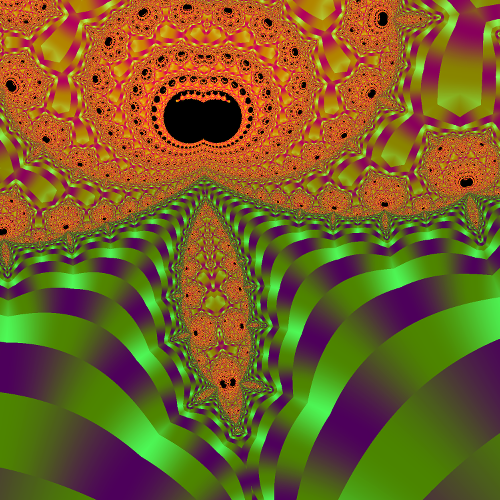結果
| 問題 | No.325 マンハッタン距離2 |
| コンテスト | |
| ユーザー |
 koyumeishi koyumeishi
|
| 提出日時 | 2015-12-18 13:47:47 |
| 言語 | C++11(廃止可能性あり) (gcc 15.2.0 + boost 1.89.0) |
| 結果 |
AC
|
| 実行時間 | 2 ms / 1,000 ms |
| コード長 | 5,740 bytes |
| 記録 | |
| コンパイル時間 | 965 ms |
| コンパイル使用メモリ | 88,584 KB |
| 実行使用メモリ | 5,376 KB |
| 最終ジャッジ日時 | 2024-09-16 08:31:10 |
| 合計ジャッジ時間 | 1,812 ms |
|
ジャッジサーバーID (参考情報) |
judge3 / judge2 |
(要ログイン)
| ファイルパターン | 結果 |
|---|---|
| sample | AC * 3 |
| other | AC * 24 |
ソースコード
#include <iostream>
#include <vector>
#include <cstdio>
#include <sstream>
#include <map>
#include <string>
#include <algorithm>
#include <queue>
#include <cmath>
#include <set>
using namespace std;
#define EPS 1e-7
class xy{
public:
long double x;
long double y;
xy() : x(0), y(0) {}
xy(long double xx, long double yy) : x(xx), y(yy) {}
xy(const xy& v) : x(v.x), y(v.y){}
xy& operator = (const xy& v){
x = v.x;
y = v.y;
return *this;
}
xy operator + (const xy& v) const{return xy(this->x+v.x, this->y+v.y);}
xy operator - (const xy& v) const{return xy(this->x-v.x, this->y-v.y);}
xy operator * (const long double& k) const{return xy(this->x * k, this->y * k);}
void operator += (const xy& v){x+=v.x; y+=v.y;}
void operator -= (const xy& v){x-=v.x; y-=v.y;}
void operator *= (const long double& k){x*=k; y*=k;}
bool operator < (const xy& v) const{
if(x!=v.x) return x < v.x;
return y < v.y;
}
bool operator > (const xy& v) const{
if(x!=v.x) return x > v.x;
return y > v.y;
}
bool operator == (const xy& v) const{
return fabs(x-v.x) + fabs(y-v.y) < EPS;
}
};
xy operator * (const long double& k, const xy& v){return v*k;}
//u corss v
long double cross(const xy& u, const xy& v){
return u.x*v.y - u.y*v.x;
}
//u dot v
long double dot(const xy& u, const xy& v){
return u.x*v.x + u.y*v.y;
}
//distance between two points
long double dist_p_p(const xy& a, const xy& b){
return sqrt( fabs(dot(a-b, a-b)) );
}
//distance between a point and a line segment
long double dist_p_ls(const xy &p, const xy &s1, const xy &s2){
xy vl = s2 - s1;
xy vp = p - s1;
return fabs( cross(vl, vp) / sqrt( dot(vl, vl) ) );
}
int ccw(xy p1, xy p2, xy p3){
p2 -= p1;
p3 -= p1;
long double c = cross(p2,p3);
if( c > EPS /* c > 0 */) return +1; //counter-clockwise
if( c < -EPS /* c < 0 */) return -1; //clock-wise
if( dot(p2,p3) < -EPS) return +2; //out of segment : p3-p1-p2
if( dot(p3,p3) - dot(p2,p2) > EPS) return -2; //out of segment : p1-p2-p3
return 0; //on the segment : p1-p3-p2
}
//are two segment p1-p2 , p3-p4 parallel?
bool is_parallel(xy p1, xy p2, xy p3, xy p4){
return abs(ccw(p1,p2, p3))!=1 && abs(ccw(p1,p2, p4))!=1;
}
//intersect
//segment p1-p2, p3-p4
bool inter_ss(xy p1, xy p2, xy p3, xy p4){
int ret1 = ccw(p1,p2, p3) * ccw(p1,p2, p4);
int ret2 = ccw(p3,p4, p1) * ccw(p3,p4, p2);
return ret1 <= 0 && ret2 <= 0;
}
bool inter_ss(const pair<xy,xy>& l1, const pair<xy,xy>& l2){
return inter_ss(l1.first, l1.second, l2.first, l2.second);
}
//return crossing point l1 and l2 without checking
xy inter_point(const pair<xy,xy>& l1, const pair<xy,xy>& l2){
long double a = cross(l2.second - l1.first, l2.second - l2.first);
//long double b = cross(l1.second - l1.first, l2.second - l1.first);
long double c = cross(l1.second - l1.first, l2.second - l2.first);
long double lam = a/c;
return l1.first + (l1.second - l1.first)*lam;
}
//convex_hull
//O(n log n)
vector<xy> convex_hull(vector<xy> &v){
if(v.size() == 0){
return {};
}
sort( v.begin(), v.end() );
int k = 0; //nums of vertex
vector<xy> tmp(v.size()*2);
//conect i from k
for(int i=0; i<v.size(); i++){
while(k>1 && cross (tmp[k-1] - tmp[k-2], v[i] - tmp[k-1]) <= 0 ) k--;
tmp[k] = v[i];
k++;
}
for(int i=v.size()-2, t=k; i>=0; i--){
while(k>t && cross(tmp[k-1] - tmp[k-2], v[i] - tmp[k-1]) <= 0 ) k--;
tmp[k] = v[i];
k++;
}
tmp.resize(k-1);
return tmp;
}
//O(n)
long double polygon_area(const vector<xy>& poly){
long double ret = 0;
for(int i=0; i<poly.size(); i++){
ret += cross(poly[i], poly[(i+1)%poly.size()]);
}
return ret*0.5;
}
//O(n)
bool point_inner_polygon(const xy& p, const vector<xy>& poly){
bool ret = false;
for(int i=0; i<poly.size(); i++){
xy high = poly[i] - p;
xy low = poly[(i+1)%poly.size()] - p;
if(high.y<low.y) swap(high, low);
if(high.y>=0 && low.y < 0){
if(cross(low,high) > 0) ret = !ret;
}
if(fabs(cross(low,high)) < EPS && dot(high,low)<EPS){
return true; //on the segment
}
}
return ret;
}
ostream& operator << (ostream& os, xy& p){
os << "{" << p.x << ", " << p.y << "}";
return os;
}
template<class T>
ostream& operator << (ostream& os, vector<T> vec){
for(int i=0; i<vec.size(); i++){
os << vec[i] << " ";
}
return os;
}
template<class T> istream& operator , (istream& is, T& val){is >> val; return is;}
#include <cassert>
int main(){
long long x1,y1,x2,y2, d;
cin >> x1,y1,x2,y2,d;
vector<xy> rho = {xy(0,d), xy(d,0), xy(0,-d), xy(-d,0)};
vector<xy> rec = {xy(x1,y1), xy(x1,y2), xy(x2,y2), xy(x2,y1)};
if(d==0){
cout << (point_inner_polygon(xy(0,0), rec)?1:0) << endl;
return 0;
}
vector<xy> p;
for(int i=0; i<rho.size(); i++){
for(int j=0; j<rec.size(); j++){
if(inter_ss(rho[i],rho[(i+1)%rho.size()], rec[j], rec[(j+1)%rec.size()])){
if(is_parallel(rho[i],rho[(i+1)%rho.size()], rec[j], rec[(j+1)%rec.size()]) == false){
p.push_back( inter_point({rho[i],rho[(i+1)%rho.size()]}, {rec[j], rec[(j+1)%rec.size()]}) );
}
}
}
}
for(int j=0; j<rec.size(); j++){
if(point_inner_polygon(rec[j], rho)){
p.push_back(rec[j]);
}
}
for(int i=0; i<rho.size(); i++){
if(point_inner_polygon(rho[i], rec)){
p.push_back(rho[i]);
}
}
sort(p.begin(), p.end());
p.erase( unique(p.begin(), p.end()), p.end());
//cerr << p << endl;
if(p.size()<=1){
cout << p.size() << endl;
return 0;
}
vector<xy> hull = convex_hull(p);
long double s = polygon_area(hull);
long long lattice_b = 0;
for(int i=0; i<hull.size(); i++){
xy tmp = hull[i]-hull[(i+1)%hull.size()];
lattice_b += max(fabs(tmp.x), fabs(tmp.y)) + EPS;
}
long long lattice_i = (s - lattice_b/2 + 1) + EPS;
long long ans = lattice_b + lattice_i;
cout << ans << endl;
return 0;
}
